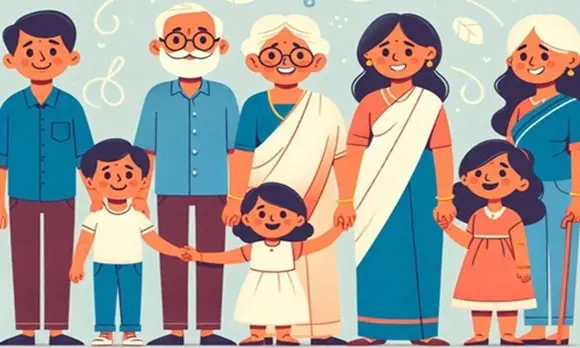Group discussion is nothing but a way where a group of people, anywhere from three to 10 people, gather to discuss some subject or topic. That’s pretty much it. However, this is no ordinary discussion, you see, there is organisation and intent. Everyone is here to learn from one another, so feel free to share your thoughts, opinions, and facts. As you might have guessed, group talks are commonplace in many settings, including classrooms, workplaces, and interviews. Why? Because they’re fantastic at testing individuals’ capacities for conversation, analysis, and teamwork.
This is the standard procedure. It is common practice to have a third party, such as a facilitator or moderator, present to keep the discussion on track and ensure that everyone has an opportunity to speak. Everyone gets a chance to voice their opinion, answer to others, and expand upon what others have said. All in all, everyone is involved and kept on their toes because it’s like a lively, conversational interaction. Lets explore advantages and disadvantages of group discussion:

Advantages of Group Discussion
1. Makes You Think Harder
If you want to exercise your brain a little harder, well, you must join group discussions in that case. Why? Well, they make you question your assumptions and explore alternative viewpoints. Others in the group may refute an argument’s validity, prompting the original speaker to reconsider and clarify their position, like what they stated is correct and what the source is, and things like that. This very back and forth is what improves your critical thinking and makes you think even harder on the topic of discussion.
- Read also: Public Speaking Advantages and Disadvantages
2. Sharpen Your Communication Skills
If you think you are not good at communicating with others, well, give group discussions a try and you’ll see the magic happen for yourself. Here, both speaking and listening to others are skills you hone. It’s not enough to merely speak; you must also listen and answer to the words of others. Active listening, thought processing, and idea sharing are all skills you’ll hone in these conversations, you know?
3. Learn from Each Other
When sitting in a group discussion, you are likely to learn a lot from other people since they all bring something unique to the table. For example, a friend’s explanation could be the answer you’ve been looking for if you’re at a loss. In addition to expanding people’s horizons, this kind of collective education strengthens bonds of friendship and camaraderie overall.
4. Get Better at Solving Problems
When it comes to addressing problems, having two or more minds is always an advantage. Brainstorming and the exchange of different ideas is what is super interesting about group discussions, and that can help you come to a solution even faster. All in all, the group’s collective intelligence allows it to solve problems in novel ways.
5. Boost Your Confidence
If you really feel that your confidence is low, and you can’t really talk with other people because you’re way too shy, well, in that case too, give group discussions a try. See, it is pretty simple, your confidence in front of an audience will grow in direct proportion to your level of participation.
6. Great for Auditory Learners
You will thrive in a group setting if you are an auditory or verbal learner. You retain more of what you hear when you say it out, whether it’s to yourself or someone else, you know? To better understand and retain information, it is helpful to ask questions and engage in vocal discussion rather than just keeping it to yourself.
Disadvantages of Group Discussion
1. Takes Up Too Much Time
First of all, you see, group discussions really have a major drawback in terms of time-consuming nature. These conversations can last longer than intended since everyone has an opportunity to express their ideas and opinions, you know? This can be rather ineffective, particularly if the discussion veers off course or if reaching an agreement takes endless time, and you might not like that.
2. Not for Everyone
Simply put, group conversations are not everyone’s cup of tea, particularly for those who suffer from anxiety or lack confidence while fronting others, and that really is a big issue for some people which might appear to be a small thing for some of you. These people may find it difficult to engage completely, which would affect their learning as well as their capacity to be of use.
3. Sometimes, Can Go Off the Rails
Group conversations occasionally can go nowhere and then you’ll be feeling like you have wasted a bunch of time which could have been put to good use. This occurs when the discussion veers off-course or when some members dominate with pointless comments, and that happens more often than you think.
4. Overpowering Voices
See, when speaking in group discussions, there will always be someone who will overpower the discussion and limit others from speaking and making a point in the conversation. This is particularly a big issue if you are too shy of a person or you like to keep it to yourself, that means, you’ll likely be able to speak in a group discussion. And yes, for some who feel underappreciated, it can also foster anger and dissatisfaction.
5. Hard to Reach Agreement
Finding agreement in group projects can be challenging, particularly in cases of conflicting viewpoints and strong convictions mixed in. That mainly happens because there are always some people who have already made up their minds and will not even consider anyone else’s viewpoint, even if it sounds logical. And that’s how reaching a common ground by means of compromise and negotiation can be demanding of time.
6. Clashes and Conflicts
One thing is pretty common in group discussions, and that is the chances of clashes and conflicts happening mid-conversation. You see, different points of view could cause intense arguments and raise tensions, hence personalizing disagreements. And for those of you who don’t want to get involved in any clash or conflict with others, this very thing can encourage you to not participate in group discussions.
Comparison Between Advantages and Disadvantages of Group Discussion
| Advantages | Disadvantages |
| Enhances Critical Thinking | Time-Consuming |
| Good For Communication Skills | Not Suitable for Everyone |
| Facilitates Mutual Learning | Can Deviate from Topic |
| Helps In Problem-Solving | Dominated by Stronger Voices |
| Increases Confidence | Difficult to Reach Consensus |
| Benefits Auditory Learners | Potential for Clashes |


